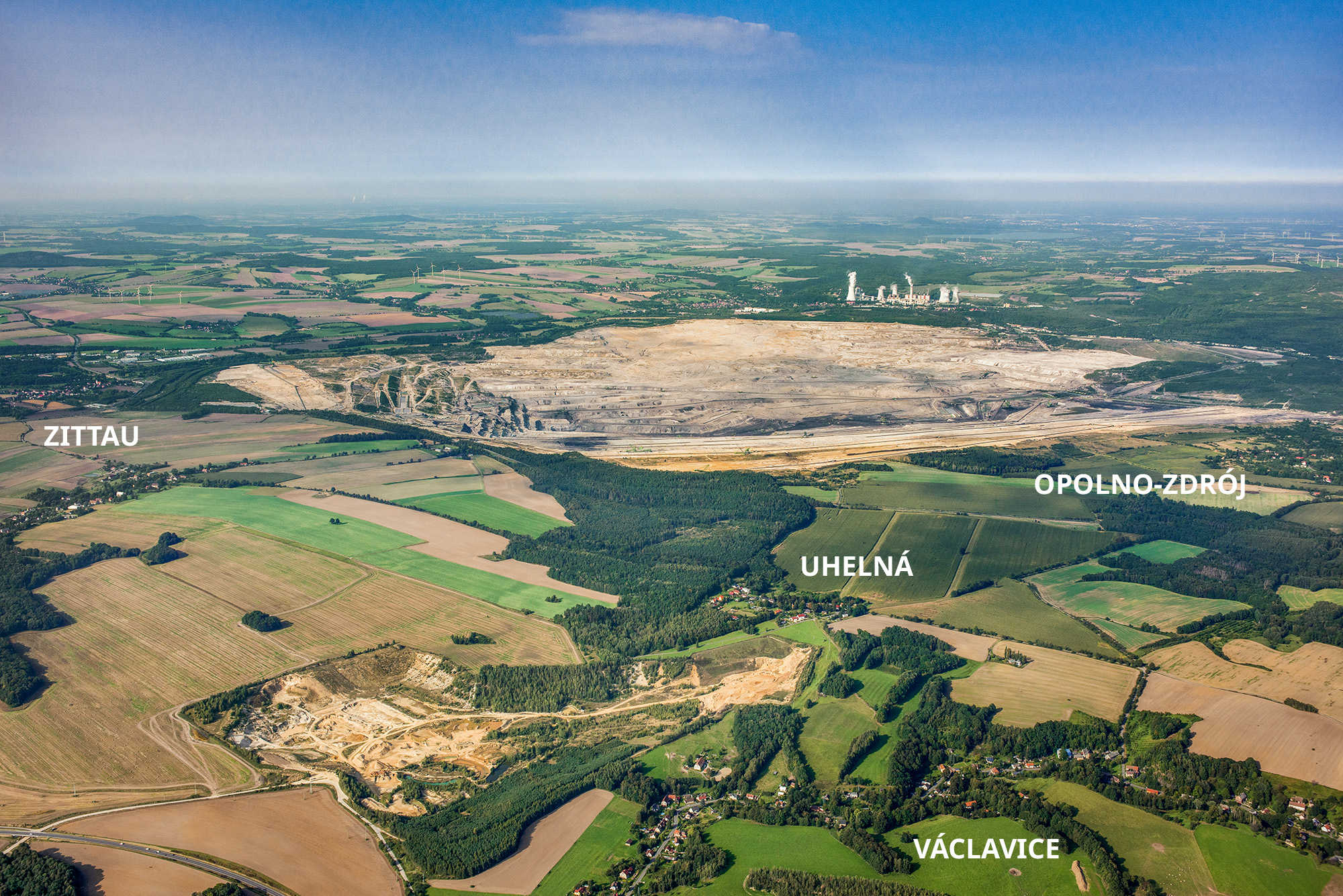Groundwater is irreversibly disappearing from the border of the Lusatian and Jizera Mountains.
Due to its size and depth, it is being drawn down by the Polish brown coal mine Turów. This website describes the efforts of the affected inhabitants of the Czech-German-Polish Tri-border area to quickly curb the mine’s activity.
We dedicate it to all active people willing to stand up for environmental protection.
3 km from despair: the story of a neighborhood
When you go for a walk in the Zittau Basin in the Czech-Polish-German tri-border area, you constantly feel a strange noise in your back. From the small border village of Uhelná near Hrádek nad Nisou, you can clearly see the source of this restlessness – the Polish surface mine Turów, the size of Liberec with 100.000 inhabitants. It is barely three kilometers away from Uhelná as the crow flies through fields and forest. Mining rarely stops there. On Sundays at noon, its monotonous hum is interrupted by the ringing of bells. It summons the faithful to mass in the former spa town of Opolno-Zdrój, which now stands on the very edge of the mine. Even before the war, Uhelná and Václavice were connected to Opolno-Zdrój by a hiking trail. Back then, the villages were still called Köhlige, Wetzwalde and Bad Oppelsdorf. Today, they are no longer connected by a marked trail or the same language, but by the worry of how the expanding mine will affect their future lives.
Apart from noise, increased dust and light smog, communities on the Czech side of the border are mainly concerned about the disappearing groundwater. The mine, which is more than 300 meters deep, sucks water into itself, drying up the landscape in the entire area. Streams, springs, wetlands – and especially water in wells – are disappearing. Today already, the inhabitants of Václavice have not enough water for their showers, let alone providing water for their farms. The diverted water obstructs mining in the pit and is pumped into the river Nisa, in which it travels out of the area.
While the Czech side is primarily concerned about the environmental impact of mining, Opolno-Zdrój in Poland faces an even greater threat. As mining progresses, its destruction is foreseen in the upcoming years. The church bells, which every Sunday make the whole area forget the noise of mining for a while, will be silent forever.
Since 2019, photographer Ibra Ibrahimovič has been documenting the emotionally strained coexistence of ordinary people with the mine on both the Czech and Polish sides. First for the legal non-profit Frank Bold Society, later for Greenpeace Czech Republic and most recently for the Uhelná Neighborhood Association. The result is a comprehensive documentary about the bitter life of a neighborhood: ordinary people, the surrounding landscape, and a brown coal mine.

The Turów surface mine has the area equal to the regional town of Liberec. Liberec has more than 100,000 inhabitants.

The former spa village of Opolno-Zdrój will be demolished “only” in part in Option A – the mining line will cross through the park. Option B means the de facto destruction of the village.
